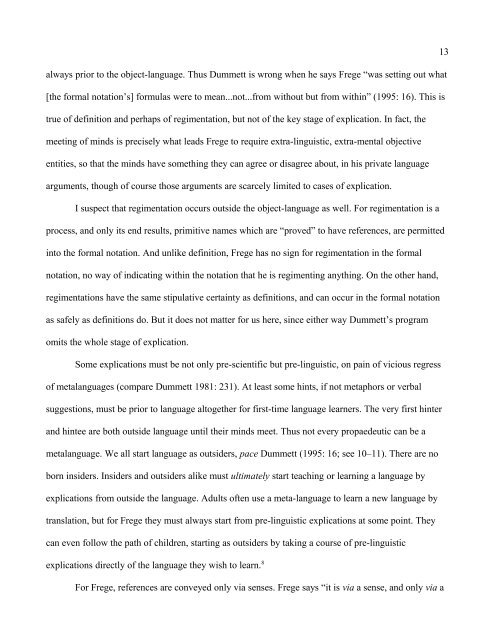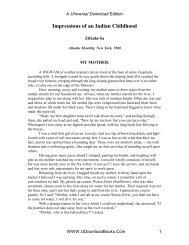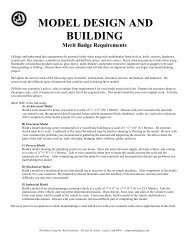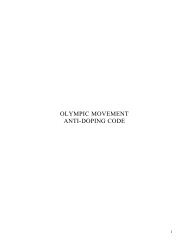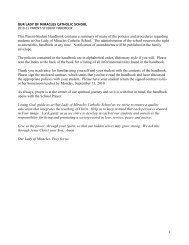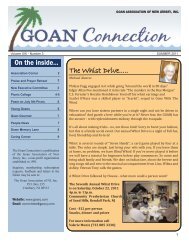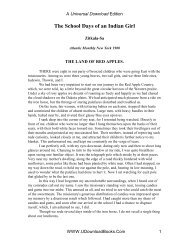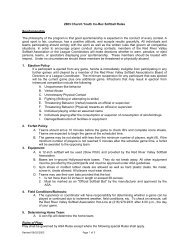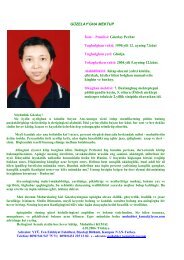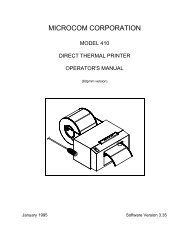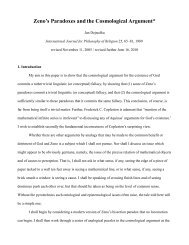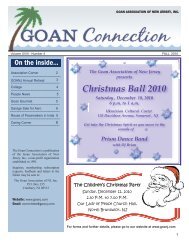Dummett's Backward Road to Frege and to Intuitionism - Tripod
Dummett's Backward Road to Frege and to Intuitionism - Tripod
Dummett's Backward Road to Frege and to Intuitionism - Tripod
Create successful ePaper yourself
Turn your PDF publications into a flip-book with our unique Google optimized e-Paper software.
always prior <strong>to</strong> the object-language. Thus Dummett is wrong when he says <strong>Frege</strong> “was setting out what<br />
[the formal notation’s] formulas were <strong>to</strong> mean...not...from without but from within” (1995: 16). This is<br />
true of definition <strong>and</strong> perhaps of regimentation, but not of the key stage of explication. In fact, the<br />
meeting of minds is precisely what leads <strong>Frege</strong> <strong>to</strong> require extra-linguistic, extra-mental objective<br />
entities, so that the minds have something they can agree or disagree about, in his private language<br />
arguments, though of course those arguments are scarcely limited <strong>to</strong> cases of explication.<br />
I suspect that regimentation occurs outside the object-language as well. For regimentation is a<br />
process, <strong>and</strong> only its end results, primitive names which are “proved” <strong>to</strong> have references, are permitted<br />
in<strong>to</strong> the formal notation. And unlike definition, <strong>Frege</strong> has no sign for regimentation in the formal<br />
notation, no way of indicating within the notation that he is regimenting anything. On the other h<strong>and</strong>,<br />
regimentations have the same stipulative certainty as definitions, <strong>and</strong> can occur in the formal notation<br />
as safely as definitions do. But it does not matter for us here, since either way Dummett’s program<br />
omits the whole stage of explication.<br />
Some explications must be not only pre-scientific but pre-linguistic, on pain of vicious regress<br />
of metalanguages (compare Dummett 1981: 231). At least some hints, if not metaphors or verbal<br />
suggestions, must be prior <strong>to</strong> language al<strong>to</strong>gether for first-time language learners. The very first hinter<br />
<strong>and</strong> hintee are both outside language until their minds meet. Thus not every propaedeutic can be a<br />
metalanguage. We all start language as outsiders, pace Dummett (1995: 16; see 10–11). There are no<br />
born insiders. Insiders <strong>and</strong> outsiders alike must ultimately start teaching or learning a language by<br />
explications from outside the language. Adults often use a meta-language <strong>to</strong> learn a new language by<br />
translation, but for <strong>Frege</strong> they must always start from pre-linguistic explications at some point. They<br />
can even follow the path of children, starting as outsiders by taking a course of pre-linguistic<br />
explications directly of the language they wish <strong>to</strong> learn. 8<br />
For <strong>Frege</strong>, references are conveyed only via senses. <strong>Frege</strong> says “it is via a sense, <strong>and</strong> only via a<br />
13


